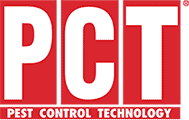
Pigeons are not a native species of the United States; they were first introduced in the early 1600’s. They are a common urban pest, though they are also found living in rural areas. These pest birds are found living throughout the United States and have a statewide distribution here in Missouri.
| Pest Identification | |
|---|---|
| Recognition | Pigeons are also commonly called “rock doves.” Adults grow to be between 11 and 12 ½ inches in length and weigh up to about 13 ounces. Color variations exist depending on the specific species; but in general, they have a light gray body with a darker colored head, shoulders, and breast. Some may have rust or metallic colored feathers going across their breast, neck, and head. They also have 2 distinctive dark bars going across their wings with another dark bar going across their tail. Their beak is grayish-pink in color. |
| Biology | Pigeons find a mate that they stay with for life; if their partner dies, they will eventually find a new mate. Pigeons can mate year-round depending on the availability of food. The male creates a nest for the female to lay her eggs in; nests are typically built in city parks, on or in buildings, in warehouses, under roof eaves, in barns, and in the spaces found in rocky cliffs. After mating, the female will lay 1-3 eggs in the nest. Both the male and female will take turns incubating the eggs for about 19 days until they hatch. The young are then fed by both parents with a milky substance that they regurgitate. The young pigeons will leave their nest after about 1 month. Pigeons are responsible for carrying and transmitting a variety of dangerous diseases to people when contact with their contaminated feces occurs. Cryptococcosis, salmonella, toxoplasmosis, psittacosis and histoplasmosis can all be spread by pigeons; they also have a type of fungus that grows in their feces which can cause histoplasmosis. |
| Habits | Pigeons create their nests out of twigs, grass, paper, and other items that they find. When the nests are first built they are weak, but the nests are often used over and over again and the build-up of feces and other debris strengthens the nest greatly. Pigeons prefer to feed on seeds, but they will eat basically anything that they are fed or happen to come across. Bird seed, popcorn, bread, French fries, pizza crusts, and peanuts can all be a part of a pigeon’s diet. Pigeons leave their nests to feed in the morning and late afternoon. They then return to their nests and stay in them overnight. Pigeons are typically seen walking around city sidewalks and parking lots- usually in large groups or flocks. They are also commonly seen foraging for seeds and grains on farms. Pigeons are a dangerous pest to invade your home or property; they can damage roof eaves, gutters, and ventilation systems with their nests and corrosive feces. The droppings can build up on the ground and be unsightly to look at and can cause slip and fall accidents. They will also introduce other parasites onto your property like fleas, ticks, and mites. |
| Prevention | Preventing pigeons from becoming a nuisance on your property can be a difficult task; pigeons are found in large numbers and will overtake a property very quickly. The best way to prevent problems with pigeons is to seek help from a professional bird control expert who can help determine what is attracting pigeons to your property and develop an exclusion plan specific for your property. |
| Professional | Rottler Pest and Lawn Solutions can help to control and remove pigeons with our bird control program. Our professionals will inspect your home and property and provide you with the best options available to remove pigeons from it and make necessary changes to help deter them in the future. Our bird control services include: a site evaluation by one of our trained experts, bird dropping and debris cleanup, deodorizing and disinfecting, trapping and exclusions services (using the top products in the business), and ongoing maintenance and follow-up services to prevent future issues with pigeons and other pest birds. |

